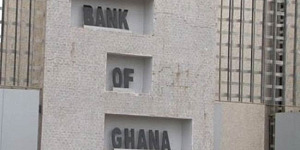Ghana's disclosure of unreported expenditure and the resulting failure to hit the 2016 fiscal deficit target highlights substantial risk to the country's public finances, Fitch Ratings says. Public finances are an important ratings weakness, but we think the new government is committed to fiscal adjustment under Ghana's IMF programme.
The Negative Outlook on Ghana's 'B' sovereign rating reflects the risk of fiscal slippage around Ghana's elections. We highlighted the failure to narrow the budget deficit and stabilise government debt to GDP as a rating sensitivity in our most recent review of Ghana's sovereign rating in September
New finance minister Ken Ofori-Atta said in early February that Ghana's 2016 deficit would be close to "double digits." The wider deficit is due to newly discovered expenditures and undisclosed arrears at government ministries of around GHS7bn (USD1.6bn). Technical difficulties at Ghana's Jubilee oil field also contributed to underperforming revenues.
We had forecast a 2016 deficit of 5% of GDP, although Ghana's track record of large budget deficits, running up arrears, and fiscal slippage around elections, meant that risks to our forecast were heavily weighted to a wider deficit. The new revelations imply that government debt was around 74% of GDP in 2016, rather than our previous estimate of 69%.
We believe that the New Patriotic Party government formed following last December's presidential election is likely to relaunch fiscal consolidation efforts. Measures such as increased VAT, a petroleum tax, and stronger payroll controls caused the deficit to fall sharply in 2015 (to 6.3% of GDP, from 10.2% in 2014). President Nana Akufo-Addo said in his first state of the national address on Tuesday that his new government would significantly reduce the deficit this year.
The new government's biggest challenges will be enforcing spending controls at the line ministries and improving revenue collection, in our view. Mr Ofori-Atta said when he assumed office on 30 January that he was "committed to cleaning up our public finances, managing the enormous debt... to create the needed fiscal space [to] invest in critical infrastructure, and empower the private sector to create jobs." The Finance Ministry said this month that it would "rationalise public expenditures, strengthen contract management, and realign statutory funds to priority projects" and was "committed to ensuring fiscal discipline and good economic governance, focusing on transparent and accountable use of public resources" in line with the Public Financial Management law passed last year.
We also think Ghana's USD915m IMF extended credit facility will act as a policy anchor. IMF disbursements have eased external funding pressures, and the programme is a key support to Ghana's 'B' sovereign rating. The new government has said that some programme targets would need to be renegotiated. Some of the stated objectives of the new government, on infrastructure investment and tax cuts, may also conflict with the IMF programme. But the Fund and the government have stated their continued support for the programme.





















































